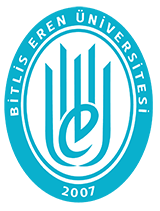EXERGO-ENVIRONMENTAL SUSTAINABILITY ASSESSMENTS OF ORGANIC RANKINE CYCLE PLANTS POWERED BY A TYPICAL ABANDONED OIL WELL
Abstract
Economic and technical factors often force players in the oil and gas sectors to abandon oil wells with significant but minimal energy contents. To promote energy efficiency, efforts are ongoing to explore viable means of recovering such residual energy, basically as geotherms, for power generation. However, there are sparse studies in the literature that assess the exergoenvironmental sustainability potentials of power generation from ORC using abandoned oil wells as the primary energy source, thereby necessitating this study. The exergetic sustainability and exergo-environmental performance of non-recuperative and recuperative organic Rankine cycle (ORC) plants were assessed in this study for the production of electricity from abandoned oil wells. The geomechanical properties of a typical oil well in Nigeria were employed as inputs into an established COMSOL model to determine the thermal profile of the heat source. For the ORC plant, the mass, energy, and exergy balance equations defined by the Thermodynamics laws were implemented in MATLAB. Also, MATLAB was adopted for computing the exergetic sustainability and exergo-environmental metrics for the individual components and the entire system. Results showed that the condenser exhibited the least exergo-environmental sustainability for both ORC schemes assessed, meaning that it contributed the most to energy wastages among the system components. Furthermore, results showed that the exergo-environmental impact rates of the condenser are highest in both cases. Generally, results showed that the inclusion of a recuperator would improve the exergy-based environmental sustainability of the ORC plant. Specifically, the overall rate of exergo-environmental impact would decrease from around 86 Pt/h to about 76 Pt/h, amounting to approximately 13% decrease.
Collections

DSpace@BEU by Bitlis Eren University Institutional Repository is licensed under a Creative Commons Attribution-NonCommercial-NoDerivs 4.0 Unported License..













